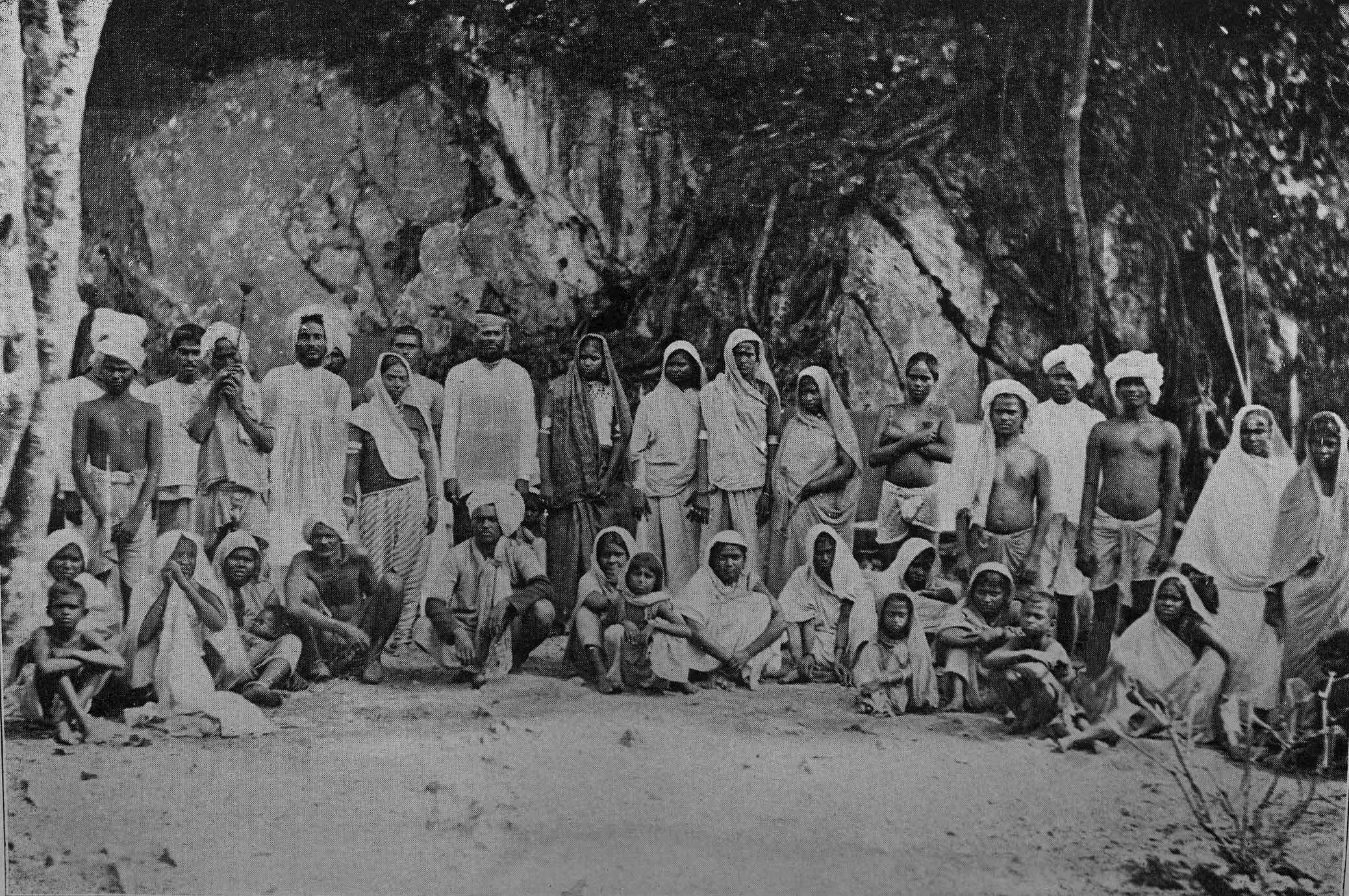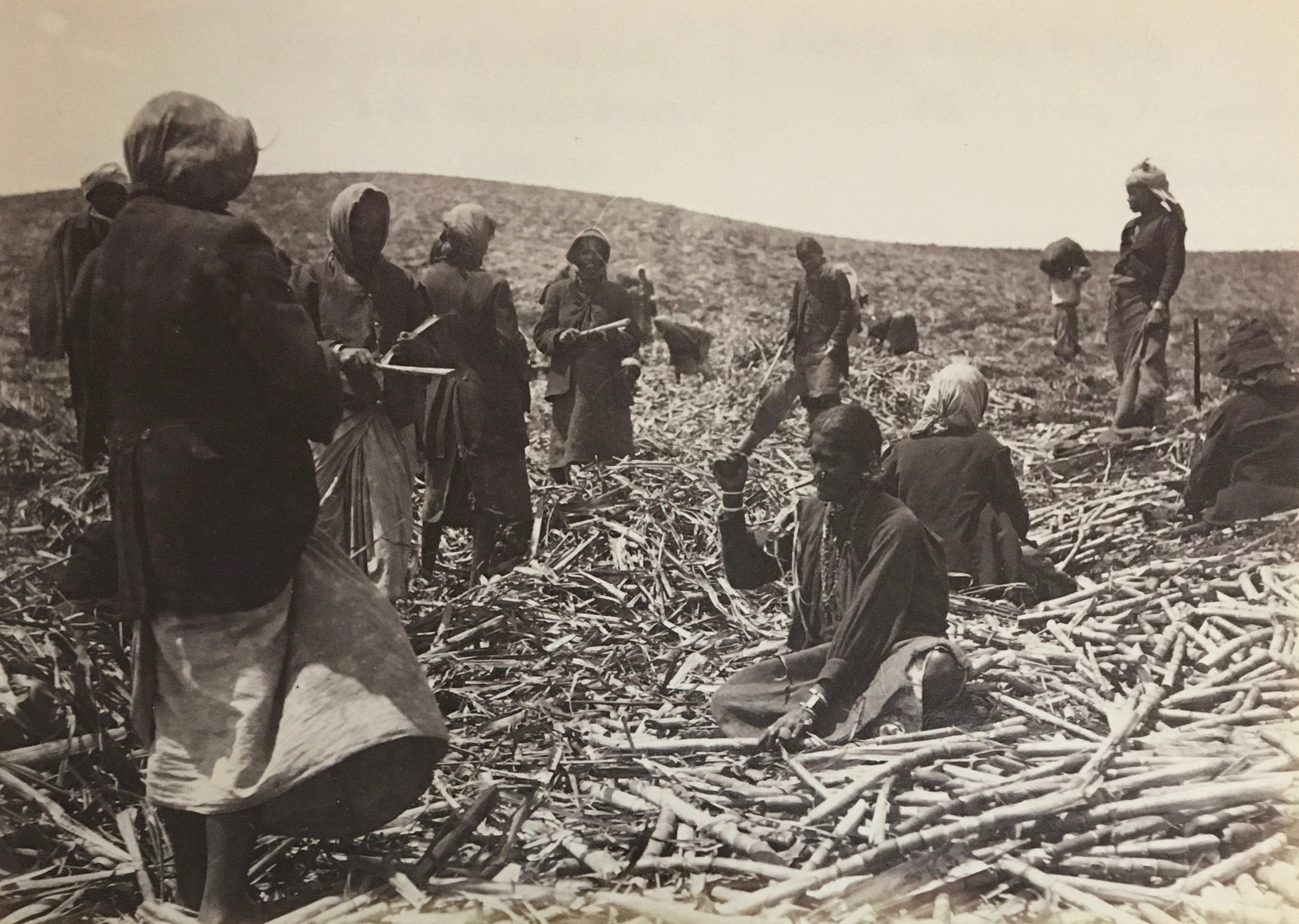
Emerging Scholarship and Art
This section of the website is dedicated to providing a platform for new and emerging scholars and artists to share their work.
May 2025
In March 1913, colonial police fired on a crowd of Indian sugar workers on Rose Hall estate, British Guiana, killing fifteen people and injuring thirty-nine more. The following document contains transcripts of seven interviews conducted with Indian indentured labourers in the aftermath of the killings, unearthed during research in the United Kingdom’s National Archives. Despite the horrific conditions of their emergence, the interviews provide a direct and all-too-rare perspective on life and labour in the final years of indentureship in British Guiana, giving voice to the crushing work, the fear of evictions, and the horrors of the police violence, alongside more intimate aspects of life usually left out of the official record – marriage, family, memories of life in India, and motivations for migration.
December 2024
Scott Ting-A-Kee is a Guyanese novelist, poet and secondary school teacher. His first novel, Red Hibiscus, was published in 2018, and follows three diviners in ancient China who, through their gifts of foresight, see centuries forward to the time of Chinese indentureship. In this interview with the Ameena Gafoor Institute, Ting-A-Kee discusses the research behind Red Hibiscus, his early encounters with Caribbean literature and the challenges of combining history and myth in literary storytelling.
By Ben Jacob, December 2024
‘Planting in the Ruins’ is a preliminary piece of work based on research on the environmental history of indentureship in British Guiana and Mauritius, undertaken with the supervision of Dr Michael Joseph at Cambridge University. Across three chapters, the study looks at the intimate lives of Indian indentured labourers in relation to sugarcane’s two faces in the late nineteenth century: as a commodity in a newly-liberalised global market, and as a material substance that remade landscapes to extract surplus from people, plants and soil. Working between large-scale histories of liberal capitalism and its racialised labour system, ‘Planting in the Ruins’ traces the history of plantation workers, bound to the canefields by punitive labour laws, exposed to ecological violence by disturbed plantation landscapes, yet united in the effort to turn this forced intimacy with the non-human into a source of collective nourishment.
April 2024
Nishant Batsha is a novelist and author of Mother Ocean Father Nation (2022), set in a fictional South Pacific island nation in the wake of colonialism, Indian indentured migration and nativist postcolonial politics. In April 2024, Ben Jacob interviewed Nishant about his work. We spoke about his research in Fiji and Trinidad, the relationship between his scholarly work on indentureship and his fictional writing, and the ‘fabulation’ of the island setting of his first novel.
I am a mother, and a carer to my own elderly mother. My parents were born in Saint Lucia and migrated to the UK in the 1960s. I was born in East London and spent time with my grandfather in Saint Lucia as a teenager, recording his stories. Around this time, I became curious to research my family history, since there was limited information available on how Indian immigrants arrived in the Caribbean. After completing my bachelor’s degree, I worked in the insurance industry for ten years. All the while, I continued to collect pieces of family history with the help of parents and grandparents. Now, I am using my archive towards a Masters in Fine Art at the Royal College of Art.
February 2024
Jonathan Connolly is an assistant professor of history at the University of Illinois Chicago, and the author of Worthy of Freedom: Indenture and Free Labor in the Era of Emancipation of the British Empire (June 2024). Connolly’s work focusses on indentureship in Trinidad, British Guiana and Mauritius, tracing mid-nineteenth century debates around race, labour and freedom in the aftermath of the abolition of slavery in the British Empire. In February 2024, the Ameena Gafoor Institute’s Ben Jacob interviewed Connolly about his research on indentureship, his upcoming book and the wider field of indentureship studies.
I am a deaf British Mauritian visual artist based in East London. My work is a deeply personal exploration of self-discovery, rooted in my British Mauritian heritage. It all began with ancestral research into the Indian indenture system, which unexpectedly revealed a connection to a French aristocratic surname in my family's history. This discovery led me to question the implications of hidden family narratives that have been carried through generations, and particularly how they have affected women in patriarchal societies.
By Swetam Gungah, February 2023
This essay provides a glimpse of the life and achievements of Dookhee Gungah, my ancestor. He was born on 11 August 1867 in Mauritius, the eldest son of Fowdur Gungah and Busmoteea, both indentured immigrants who came from India in 1854 and 1857 respectively. He was qualified by his contemporaries as a great philanthropist, father of free education, social reformer, champion of Hinduism, entrepreneur, and patron of Arts and Culture. In the essay, I look at some of the reasons and circumstances that led to him to be bestowed with such endearing accolades. Dookhee Gungah passed away on 24 March 1944, leaving behind a rich legacy, and a unique and inspiring story.
Cheriese Dilrajh, Goldsmiths University of London, July 2022
This dissertation was written in Summer 2022 for my MA Art and Politics at Goldsmiths, University of London. Drawing on my own history, I look at the differences in migration within the group racialised as 'Indian' under apartheid in South Africa. Mapping some of the tensions present in the neo-apartheid era, such as xenophobia, anti-blackness and the July 2021 riots, I break down the history and afterlives of migration across class. I conclude, more imaginatively, that the ocean (or the African-Indian Ocean) holds counter-colonial ideals for a world defined by hybridity, fluidity, borderlessness and multiculturalism.
By Showbidan Ally, Birkbeck University of London, July 2022
This dissertation was written in Summer 2022 for my undergrad BSc Social Sciences, University of London. Drawing motivation from generational legacies of indentured Indian labourers and inspired by personal historical documentation, I explored literature surrounding their identity transformation during colonisation. The research examined the ramifications of contracted Indian indentureship in the former British Guiana to becoming Indian-Caribbeans and later changing into Indians living in global diasporic communities. Recalling past indentured journeys of sacrifice and by reflection via oral narratives from their descendants, I argued that hardships continued during several colonised passages of time and migration, echoing patterns of racial discrimination.
By Ben Jacob, Pembroke College, Oxford, December 2021
This dissertation was written in Spring 2021 when I was an undergraduate at Pembroke College, Oxford. In it, I look at the possibility of recovering the forgotten lives of Indo-Caribbean indentured labourers. Juxtaposing archival research with literary fiction, I argue that the archives of indentureship convert human lives into statistical data in which the intimate stories of the indentured are necessarily absent. Placing archival documents alongside historical fiction, I explore the ability of the latter to stretch beyond the limits of the archive, and the role of imagination in remembering the indentured past.










